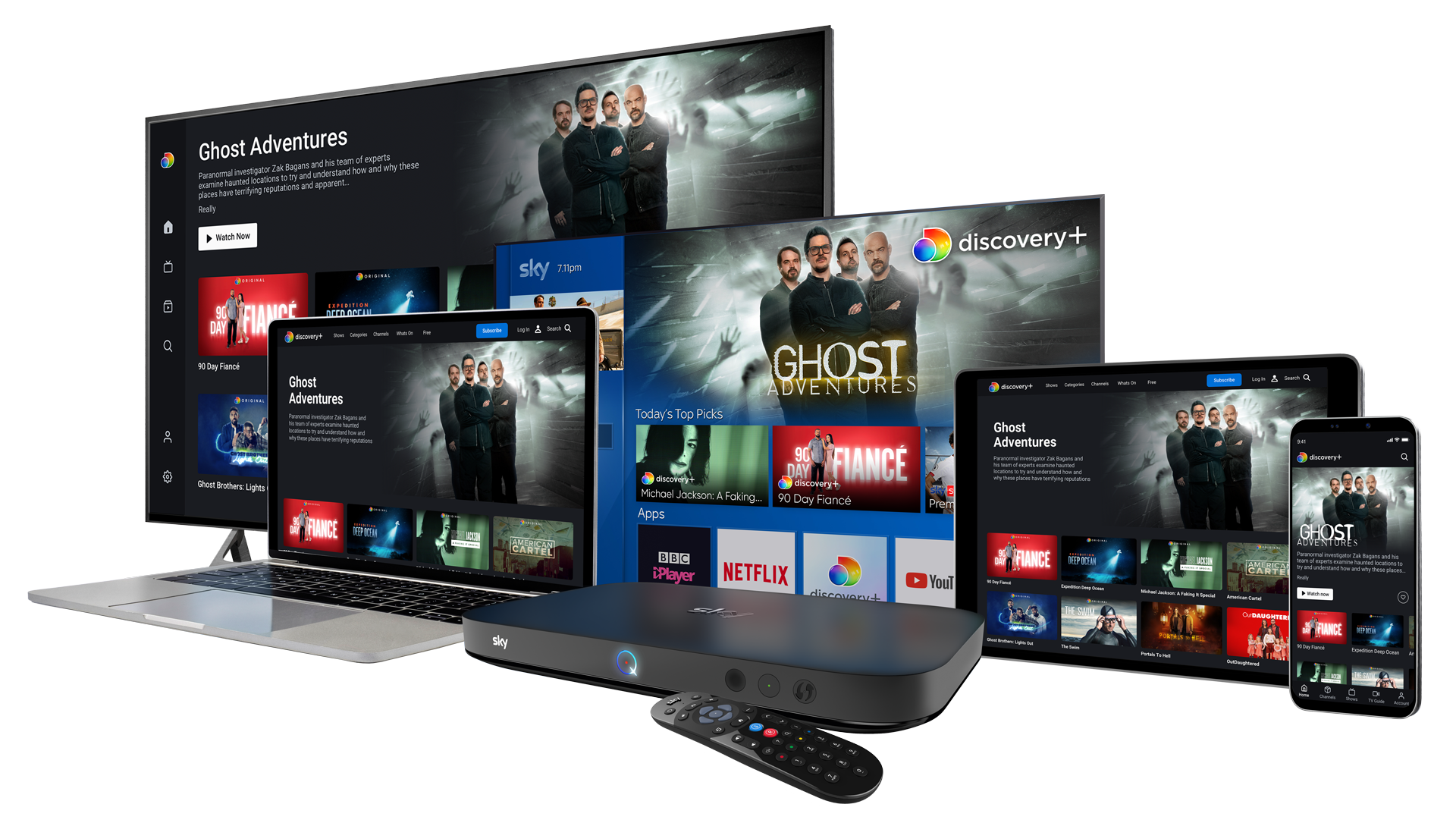
After more than 40 years of operation, DTVE is closing its doors and our website will no longer be updated daily. Thank you for all of your support.
Sky is quickly becoming the gateway to Europe for US streamers

Over the past seven days, two giants of US broadcasting – NBCUniversal and ViacomCBS – have announced partnerships with Sky to roll out their respective streaming services in Europe.
In the case of NBCU’s Peacock, a rollout on Sky is unsurprising given that they share the same parent company in Comcast, but it is the news that Paramount+ is coming to Sky which shows the operator’s pulling power.
ViacomCBS has invested heavily in Paramount+ since its launch in March, and the company is evidently happy in how things are going.
Speaking on the company’s investor’s call, ViacomCBS CEO Bob Bakish said: “In short, by putting the full power of ViacomCBS behind Paramount+, we’re beginning to see the massive potential this service has… While it’s early days, Paramount+ is clearly working, which is why we’re continuing to invest to deliver on its promise and potential.”
And of Sky, Bakish said: “This is a powerful deal. Not only does it extend important benefits and economics from our legacy business, but it’s also a game changer for Paramount+ in these markets.”
With the likes of Netflix, Amazon and Disney already holding a firm grip on mature markets, it is increasingly difficult for US players to break Europe, and Sky is evidently proving to be an attractive gateway into the region.
Sky high
While Sky’s subscriber numbers dipped across Europe by 248,000 in Q2, it still has over 23.2 million subscribers in the UK, Italy, and DACH (where it has recently launched an internet-only version of its Sky Q service), making it unignorable for any streaming operator looking to break into the market.
As much was admitted to by James Gibbons, Discovery’s EVP, GM UK & Nordics, who spoke to Digital TV Europe earlier this year.
“Some people have been comfortable going with an iOS app or an internet service, but we really wanted to be on a big aggregator platform like Sky,” he said. “That’s because we felt that our content was largely known through our linear channels. So to launch without being able to access that audience directly seemed to be leaving too much opportunity on the table. We really wanted to be on a major big screen platform because ultimately, as we all know, most streaming consumption is still on the big screen and certainly that’s where a lot of the big growth is.”
Discovery has clearly benefited from the partnership to launch discovery+ on Sky in November 2020. The company has not revealed a market-by-market breakdown of subscribers, but the 12 months free access to the streamer for Sky Q customers is likely to have significantly contributed to the 18 million subscribers recorded on August 3.
For Sky, its aggressive aggregation strategy is paying off at a time when cord-cutters and cord-nevers are increasingly becoming the norm across Europe. The operator has, under new CEO Dana Strong, increasingly focused its efforts on aggregation.
At the time of her appointment, Strong said that Sky’s ‘journey’ in recent years has been to “expand our value proposition beyond sport” and that the integration of content from the likes of Netflix, Disney+ and Amazon Prime Video “is really working”.
Mutually beneficial
Unlike in the US where subscription fatigue is setting in, Europe is still a growth market for streaming but an incredibly competitive one. But even a company like Nordic Entertainment Group with its absurd amount of sports rights is still reliant on partnering with pay TV operators when launching in new markets, and it would not be a surprise to see NENT tie up a deal with Sky if and when it launches in its operating countries.
Not only does Sky provide immediate access to an audience of millions of subscribers – whether that be in the form of promotional deals like in the case of discovery+, or bundling opportunities – partnering with Sky also provides a nascent streaming service with an elevated status of legitimacy in an increasingly crowded streaming market.
discovery+, for example, shares a number of similarities with factual streamer CuriosityStream (which was set up by Discovery Channel founder John Hendricks in 2015). It’s not exactly a 1:1 parallel (CuriosityStream’s documentary content is generally more educational than the array of non-scripted content offered by discovery+, while the latter also crucially is the European streaming home of the ongoing Olympic Games), but discovery+ has already eclipsed CuriosityStream’s 16 million subscribers in a fraction of the time.
When there are hundreds of streaming services available to consumers, it is difficult for all but the most enthusiastic of industry followers to decide which is worth their time and money. Rightly or wrongly, the stamp of approval from Sky through its UX and marketing, provides streamers with a leg up and sets them apart from the crowd.
The benefits for the pay TV operator itself are obvious. It boosts the amount of content that it can offer to its subscribers, while ensuring that its set-top box captures the all-important HDMI 1 spot on a TV and is where users go for whatever they want to watch.
It is impossible to state with absolute confidence that Peacock and Paramount+ will be successful in Europe, and whether that will come as a result of their association with Sky. However, should these streaming services perform to the level that their operators would like in Europe, it would be hard to argue that Sky had nothing to do with it.




